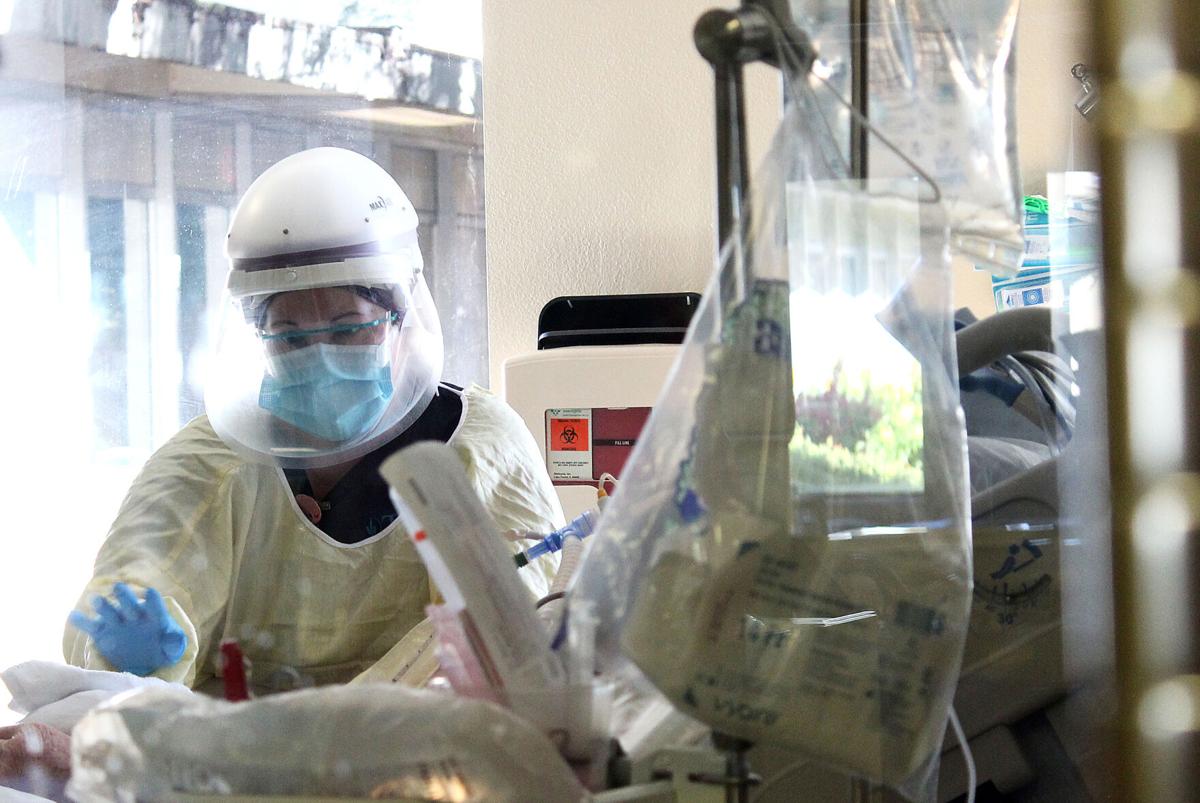Figuring out how the virus that causes COVID-19 affects the human body after an acute infection subsides — both short-term and over time — is the focus of a new nationwide study, and researchers here are looking for people to participate.
University of Arizona Health Sciences has so far received $9.2 million to lead the Arizona portion of the research, which includes partnerships with Arizona State University and Northern Arizona University.
Overall, they are seeking at least 900 Arizona residents as part of the National Institutes of Health’s study, called Researching COVID to Enhance Recovery or RECOVER.
Nationwide, the study will include about 17,000 participants.
“It’s not going to include treatment or care. It’s really for us to learn,” said the UA’s Amanda Galster, director of the Arizona portion of the study, who emphasized the objective is to observe.
Outcomes from COVID-19 vary from person to person and, while many people make a full recovery, others continue to experience symptoms related to the infection or develop new symptoms over time.
These symptoms can range from mild to incapacitating, may continue after recovery from the disease’s acute phase, and can harm a person’s overall quality of life.
Post-acute symptoms sometimes affect multiple organs and body systems, UA Health Sciences reports, and can bring on pain, headaches, fatigue, shortness of breath, “brain fog,” a chronic cough, sleep disturbances, anxiety, depression and fever.
“Up to 30% of the people who experienced coronavirus infections may have a hard time recovering, and many of them have not fully recovered up to 90 days later,” said Dr. Janko Nikolich-Žugich, professor and chair of the Department of Immunobiology at the UA’s College of Medicine.
“What we’re trying to do, along with a consortium of sites across the country, is to figure out why these people are getting sick and how to help them.”
In addition to looking at the symptoms of what’s now commonly called long COVID, the broader objective of the study is to understand how people are recovering in general.
To join, participants don’t need to be vaccinated and also don’t have to have been sick with COVID-19 because researchers need some non-COVID patients for the study’s control group. No one under the age of 18 can join.
The research team is working to set up a website where people can register, but in the meantime people interested in participating should email researchers at recover@email.arizona.edu.
Participants will initially be asked to have some basic medical information collected such as their height, weight and blood pressure levels, as well as having having some lab tests done. Those who are having long-term symptoms from COVID-19, or who have abnormal test results, may be asked to do additional medical tests.
There will no charge to participants for the medical tests.
The Arizona research team includes scientists and clinicians who specialize in a multitude of areas, including infectious disease, immunity, inflammation, sleep, mental health, gastroenterology, pulmonary and critical care medicine, neurology, cardiovascular diseases and virology.





